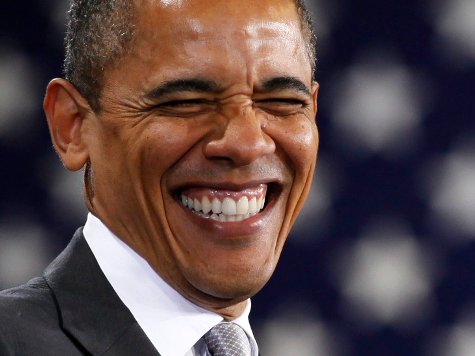
I was obviously depressed in the immediate wake of last week’s defeat. Even worse than another four years of Obama was the notion that the electorate had changed in a fundamental way. It looked like I was wrong about the 2008 election being an anomaly, and we were settling into a period where demographics would fuel Democrat dominance at the ballot box for years to come. We were perhaps past the tipping point, where those who benefit from government far exceed those who contribute to it. Closer analysis, though, reveals that those fears are misplaced. The Republican Party had an historic opportunity to chart a renewed course for growth and stability, and they blew it.
One statistic goes a long way towards explaining last week’s defeat. In 2012, around 14 million fewer people voted than in 2008. There were even fewer votes cast this year than in 2004, even though we’ve added millions more voters since then. At the end of counting, Romney will get just a handful more votes than John McCain earned in his 7-point loss four years ago.
At the beginning of August, I took a bird’s-eye view of the coming campaign and noted the striking similarities between the Obama campaign efforts and that of George Bush in 2004.
The Bush campaign deployed a massive, at the time groundbreaking field operation. They hustled for new registrations and found GOP voters where no one had thought to look. (I guarantee you, if yesterday’s Chick-Fil-A event had happened eight years ago, the Bush team would have been out registering voters.) They had one of the most impressive voter turnout operations in modern presidential history. These used wedge issues like gun rights, gay marriage, and abortion to fuel a higher GOP turnout.
One doesn’t have to be a political professional to see the similarities with today’s campaign. It goes a long was to explaining why Obama and the media are obsessed with sparking a new “cultural war” around social issues like contraception and same-sex marriage. The left’s ongoing obsession with Voter ID laws is designed purely to boost minority turnout. Same with Obama’s directive on a very modified DREAM Act. Its the Karl Rove playbook to fire up one’s voting base.
Bush also thoroughly discredited his opponent on the number one issue that election, national security and the war on terror. Which is basically what Obama is trying to do to Romney on today’s number one issue, the economy. If Romney repeats Kerry’s mistake and fails to offer a compelling counter-narrative, he too risks being discredited with voters on their top concern.
Let’s look at each of these. Obama didn’t just have a more comprehensive and sophisticated GOTV program than four years ago; the GOP had possibly its worst GOTV effort ever. The Romney campaign spent tens of millions of dollars to develop ORCA, a centralized, mobile-driven program to identify voters who hadn’t yet voted and get them to the polls. Its failures have been well-documented here at Breitbart News and elsewhere. Worse, though, is that the national, state, and local GOP seems to have ceded all GOTV efforts to the Romney campaign. There doesn’t seem to have been even a basic vote turnout operation in much of the country.
An additional 330,000 votes in four swing states would have given the election to Romney. That’s just a handful of additional voters in each precinct. Romney and the GOP had hundreds of millions more than the McCain effort. Is it too much to ask that they get the McCain vote and maybe half-a-million more in key states?
That is probably too glib, but the fact remains that the GOP failed to turn out its voters. Romney got the same number of evangelical votes as McCain. He actually got fewer Mormon votes than Bush. There were fewer young voters this year, who went overwhelmingly for Obama, but they made up a larger share of the electorate than in 2008. There were also eight million fewer white voters than in 2008.
A big reason for this, I believe, was Obama’s “Swift Boating” of Romney during the summer. Obama’s ruthless ads against Romney and his tenure at Bain painted a caricature of Romney as an out-of-touch plutocrat. The debates allowed Romney to recover somewhat from this portrait, but, clearly, not enough. The end result was likely millions of white, working-class voters who weren’t going to vote for Obama but also weren’t going to bother to show up to support Romney. It was very effective suppression of a voting block critical to Romney’s chances.
The sad fact is, though, that the Republican party had the tools and resources to counter this. The Romney camp explains that they couldn’t tap any money to respond to the attacks until after the convention. But, the GOP SuperPACS, like Karl Rove’s American Crossroads, were under no such constraints. Rove, in particular, should have seen the game Obama was playing and tapped into his hundreds of millions to counter the President’s move.
In the end, this isn’t about second guessing tactical moves by a campaign after a defeat. It is, however, about pointing out a colossal strategic failure by the party. It neglected the ground game and ultimately failed to turn out its voters. That is the party’s most basic function. Instead, party organizations and allies deployed their resources almost exclusively into expensive and increasingly inefficient broadcast TV advertising. This is no doubt lucrative for the consultants that control the party, but serves up diminishing returns for conservatives and the party faithful.
The Republican Party let us all down.

COMMENTS
Please let us know if you're having issues with commenting.